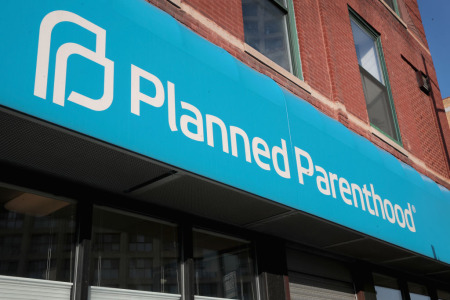Planned Parenthood: Texas law turned call centers into hotlines for people pregnant 'against their will'

The head of the largest abortion provider in the United States is alleging that Texas' heartbeat abortion ban has turned her organization's call centers into "crisis hotlines" for people who have become pregnant "against their will."
Planned Parenthood President Alexis McGill Johnson slammed Texas Senate Bill 8, which prohibits abortions once a fetal heartbeat can be detected, in a statement after filing a petition last Thursday to the U.S. Supreme Court asking the justices to invalidate the law.
On Sept. 1, the bill took effect after the U.S. Supreme Court refused to grant an emergency injunction to block it from taking effect.
"Planned Parenthood call centers have become crisis hotlines and health center staff have become crisis counselors," McGill Johnson said in the statement. "For three weeks, Texans have been without access to basic health care that is their constitutional right — forced to travel out of state to get care or carry pregnancies against their will."
Signed into law in May, Texas' Senate Bill 8 bans most abortions after a fetal heartbeat can be detected, usually around six weeks gestation. Additionally, it allows individuals to take civil action against anyone who "performs and induces an abortion" or "knowingly engages in conduct that aids or abets the performance or inducement of an abortion, including paying for or reimbursing the costs of abortion through insurance or otherwise."
The petition to the Supreme Court was endorsed by other abortion advocates, including the ACLU Reproductive Freedom Project, the Center for Reproductive Rights and Whole Woman's Health. It alleged that "Texans are in crisis" due to S.B. 8.
"Faced with the threat of unlimited lawsuits from the general populace and the prospect of ruinous liability if they violate the ban, abortion providers have been forced to comply. As a result, Texans with means must now travel hundreds of miles each way to other States during a pandemic, just to exercise a clearly established federal right," the petition reads. "The surge of Texans seeking out-of-state appointments for this time-sensitive medical care is causing backlogs in those States, delaying abortions by weeks for Texans and non-Texans alike."
Employees of abortion clinics shared the impact that S.B. 8 has had on their day-to-day operations with The New York Times. Jennifer Reince, who works at Trust Women Oklahoma City, recalled that as soon as S.B. 8 became effective in Texas, "We had every line lit up for eight hours straight."
Marva Sadler works at Whole Woman's Health, which operates four clinics in Texas. She told the publication that "I think a majority of women are being sentenced to being parents."
Pro-life groups, meanwhile, are rejecting the idea that Planned Parenthood and abortions are the only reprieves for women experiencing unplanned pregnancies. Jeff Bradford, president of the pro-life non-profit Human Coalition, told The Christian Post in a statement Wednesday that Planned Parenthood is "not equipped" to offer the kind of solutions women need.
"Human Coalition offers counseling for which Planned Parenthood is obviously not equipped. We have discovered through our clinical work that 76% of women would choose to parent if their circumstances were different. The average client interacts with Human Coalition within 24-48 hours of planning to obtain an abortion," Bradford said.
"We meet a woman wherever she is and offer her immediate long-lasting support ranging from financial assistance and housing to education and job training. Planned Parenthood has never offered real solutions to the challenges women are facing."
As litigation against Senate Bill 8 continues, the House of Representatives has approved the Women's Health Protection Act. Passed with the support of all but one House Democrat and no Republicans, the bill would codify the right to abortion found in the 1973 Supreme Court ruling Roe v. Wade into federal law and overrule many pro-life laws passed at the state level.





















